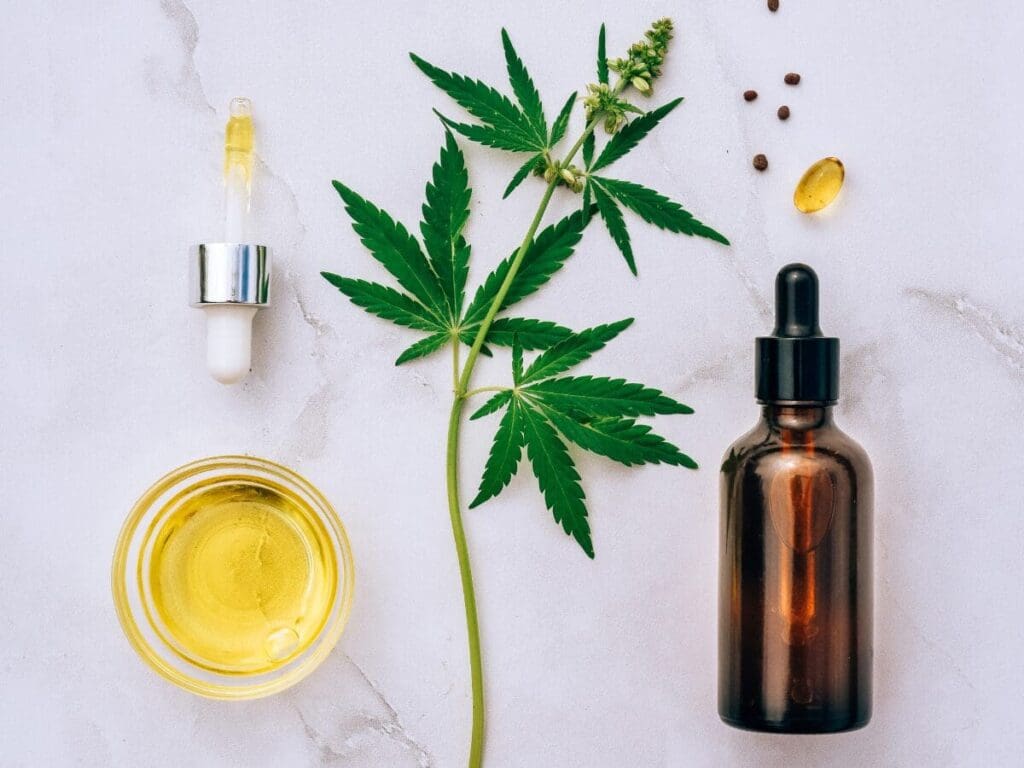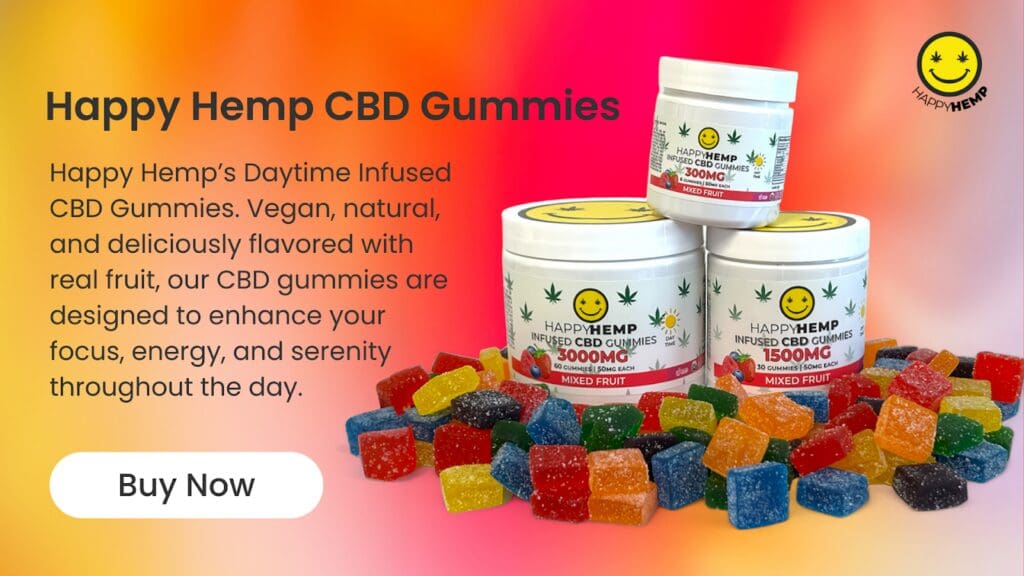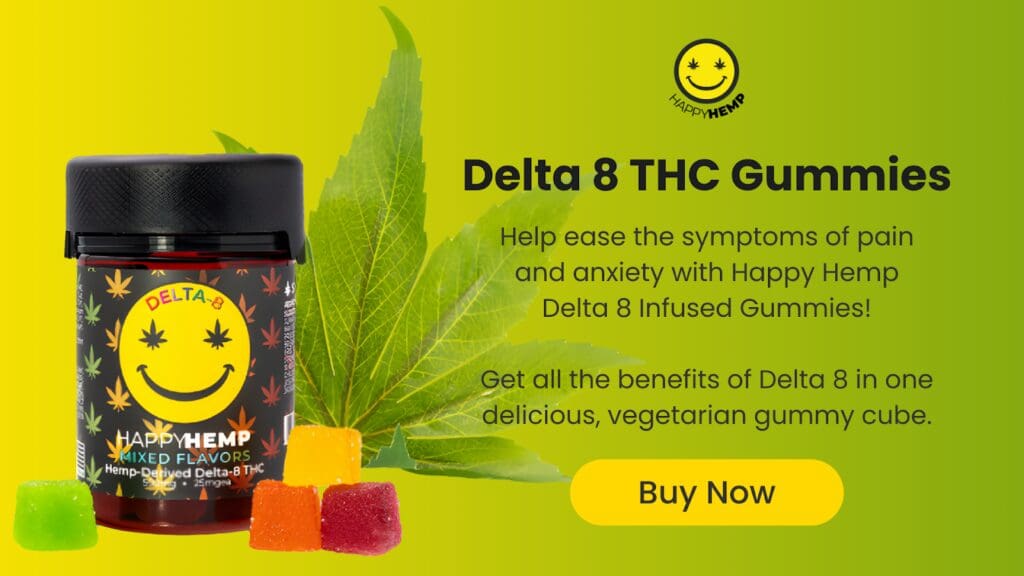Key Takeaways:
- Composition: Hemp oil and CBD oil come from different parts of the hemp plant, offering distinct benefits for nutrition, skincare, and wellness.
- Applications: Hemp oil is ideal for cooking and skincare, while CBD oil is used for pain relief, anxiety management, and improving sleep.
- Quality Check: High-quality oils feature third-party lab testing, clear labeling, and organic sourcing to ensure effectiveness and safety.
Are you confused about the differences between hemp oil and CBD oil? With both derived from the same plant but offering vastly different benefits, it’s no surprise these products are often misunderstood. Studies show that while hemp oil excels as a nutritional and skincare powerhouse, CBD oil is a popular choice for therapeutic relief, such as reducing anxiety or managing chronic pain. So, how do you decide which is best for you?
At Happy Hemp, we take pride in being a trusted authority in the CBD and hemp market. With products crafted from Colorado-grown hemp, triple-lab tested for potency and safety, and a reputation backed by thousands of satisfied customers, we’re dedicated to helping you make informed decisions about your wellness.
In this article, we’ll explore the distinctions between hemp oil and CBD oil, their benefits, uses, and how to choose the right one for your needs. Let’s dive in!
Understanding Hemp Oil And CBD Oil
Hemp oil and CBD oil are derived from the same plant species, Cannabis sativa, but they are quite distinct in their sources, compositions, and purposes. Let’s delve into the unique characteristics of each to understand their differences better:
What Is Hemp Oil?
Hemp oil is extracted from the seeds of the hemp plant through a process called cold-pressing. It is rich in essential nutrients, such as omega-3 and omega-6 fatty acids, antioxidants, and vitamins, making it a popular choice for skincare, cooking, and nutritional supplementation. Unlike CBD oil, hemp oil contains little to no cannabinoids, meaning it does not have any psychoactive effects or therapeutic properties tied to CBD or THC.
What Is CBD Oil?
CBD oil is sourced from the flowers, leaves, and stalks of the hemp plant, where cannabinoids like CBD are highly concentrated. This oil is primarily valued for its potential therapeutic benefits, including reducing anxiety, alleviating pain, and supporting overall wellness. Depending on its formulation, CBD oil may also contain trace amounts of THC, but these levels are often regulated to ensure legal compliance and non-psychoactivity.
Differences Between Hemp Oil And CBD Oil
Hemp oil and CBD oil are often misunderstood to be the same, but their differences go beyond just their names. These oils vary in extraction methods, chemical composition, uses, and even their legality. Let’s delve into the key distinctions:
Extraction Process
The way these oils are derived plays a significant role in their properties. Hemp oil is extracted by cold-pressing the seeds of the hemp plant, which is a straightforward method similar to producing olive oil. In contrast, CBD oil is derived from the flowers, leaves, and stalks of the hemp plant using advanced techniques like CO2 extraction or ethanol-based processes. These differences in production result in distinct chemical profiles and applications.
Cannabinoid Content
The presence of cannabinoids like CBD or THC is another key differentiator. Hemp oil contains negligible amounts of cannabinoids as it is made from seeds, which do not naturally produce these compounds. CBD oil, however, is rich in cannabidiol (CBD), a cannabinoid known for its therapeutic benefits, and may contain trace amounts of THC depending on the source and regulatory guidelines. This difference makes CBD oil a preferred choice for those seeking specific health benefits.
Primary Uses
The practical applications of hemp oil and CBD oil cater to different needs. Hemp oil is primarily used as a dietary supplement, an ingredient in skincare products, and even in cooking due to its nutrient-rich composition. On the other hand, CBD oil is sought after for therapeutic purposes, such as alleviating anxiety, managing chronic pain, and supporting overall wellness. The versatility of both oils underscores their unique value in distinct contexts.
Appearance And Taste
Even their physical attributes set them apart, helping consumers distinguish between the two. Hemp oil typically has a light green hue and a nutty flavor, making it suitable for culinary and cosmetic applications. CBD oil varies in color, ranging from clear to dark green or brown, with an earthy or neutral taste, reflecting its concentrated cannabinoid content. These visual and sensory differences are subtle yet telling.
Legal Considerations
The legal status of these oils also varies significantly and depends on their chemical composition. Hemp oil, which lacks psychoactive compounds, is widely legal and regulated as a food or cosmetic product. CBD oil, with its potential THC content, faces stricter regulations and its legality depends on regional laws and specific cannabinoid thresholds. Understanding these distinctions ensures compliance and informed decision-making.
Health Benefits And Uses Of Hemp Oil And CBD Oil
Hemp oil and CBD oil offer a diverse range of benefits that cater to different wellness and lifestyle needs. While both are derived from the hemp plant, their unique compositions make them ideal for distinct purposes:
The Nutritional Power Of Hemp Oil
Hemp oil is renowned for its impressive nutritional profile. Packed with omega-3 and omega-6 fatty acids, it supports cardiovascular health and promotes brain function. Additionally, it contains essential vitamins, such as vitamin E, which acts as a powerful antioxidant to protect cells from damage. Regular use of hemp oil in cooking or as a dietary supplement can contribute to overall well-being.
Hemp Oil For Skincare And Inflammation
Hemp oil’s soothing properties make it a staple in skincare routines and treatments for inflammatory conditions. Its lightweight texture deeply moisturizes without clogging pores, making it ideal for acne-prone skin. The antioxidants and anti-inflammatory compounds present in hemp oil can also help reduce redness, dryness, and signs of aging, offering a natural remedy for healthier skin.
Therapeutic Potential Of CBD Oil
CBD oil is celebrated for its therapeutic effects on the body and mind. By interacting with the endocannabinoid system, it helps alleviate stress and anxiety, promoting a sense of calm and improving sleep quality. Its anti-inflammatory and pain-relieving properties are widely used to manage chronic pain, arthritis, and muscle soreness. Furthermore, ongoing research suggests that CBD oil may offer neuroprotective benefits, supporting individuals with neurological conditions such as epilepsy or Parkinson’s disease.
Everyday Uses Of CBD Oil
CBD oil fits seamlessly into daily wellness routines through various formats like tinctures, capsules, and topicals. It is often used for managing localized pain, such as joint or muscle discomfort, with fast-absorbing creams and balms. For systemic benefits, many individuals opt for oral drops or edibles, while those seeking immediate effects may use inhalable forms like vapes in regions where permitted.
Choosing The Right Oil For Your Wellness Needs
Selecting the appropriate oil—hemp oil or CBD oil—can feel overwhelming with so many products on the market. The decision ultimately comes down to your specific health objectives and lifestyle preferences. Here’s how to make an informed choice:
Understanding Your Wellness Goals
Determining your primary health goals is key to choosing between hemp oil and CBD oil. Hemp oil, rich in nutrients and antioxidants, is perfect for boosting skin health, cooking, or as a dietary supplement. On the other hand, CBD oil offers targeted therapeutic benefits, making it more suitable for individuals seeking relief from anxiety, chronic pain, or sleep disturbances.
Evaluating Product Labels
Carefully reading labels ensures that you select the right product for your needs. Hemp oil labels typically emphasize their origin from hemp seeds and lack any cannabinoid content. CBD oil labels will detail the cannabidiol concentration and may also indicate the presence of trace amounts of THC, which could be relevant for therapeutic uses. Understanding these details can prevent confusion and help you find a reliable product.
Assessing Product Quality
The quality of the oil significantly affects its effectiveness and safety. When choosing hemp oil, look for organic and cold-pressed varieties to ensure its nutrient integrity. For CBD oil, opt for products with third-party lab certifications to verify purity, potency, and the absence of contaminants. High-quality products provide better results and reduce the risks associated with inferior manufacturing practices.
Considering Legal And Regional Regulations
The legal landscape for hemp oil and CBD oil varies widely depending on location. Hemp oil, being non-psychoactive, is typically legal in most regions without restrictions. CBD oil, however, may have regulations tied to its THC content, requiring buyers to verify local laws. Ensuring compliance with these regulations can help avoid legal complications and ensure you’re using a permitted product.
Choosing The Right Form
The form in which the oil is available plays a critical role in how it’s used and its convenience. Hemp oil is often sold as a liquid for culinary or skincare purposes, while CBD oil comes in versatile formats like tinctures, capsules, edibles, or creams. Selecting the format that aligns with your lifestyle ensures ease of use and a better overall experience.
Regulations And Legal Status Of Hemp Oil And CBD Oil
The legal status of hemp oil and CBD oil varies globally and is heavily influenced by factors such as cannabinoid content and regional laws. Understanding these regulations is crucial for consumers to ensure compliance and safe usage:
Hemp Oil Regulations
Hemp oil is widely accepted due to its negligible THC and CBD content, making it non-psychoactive. It is typically regulated as a food product or cosmetic ingredient, subject to basic safety standards. Consumers can find it easily accessible in grocery stores, health outlets, and online platforms, with few restrictions in most countries.
CBD Oil Regulations
CBD oil laws are more complex and often tied to THC content, which determines its classification as a controlled substance. In the U.S., CBD oil derived from hemp with less than 0.3% THC is federally legal, though individual states may enforce additional restrictions. Internationally, regulations vary, with some nations allowing CBD under strict conditions, while others prohibit its sale and use entirely.
THC Limits And Prescription Rules
The allowable THC threshold in CBD oil differs across regions, influencing its legal categorization and accessibility. In Europe, the limit is generally set at 0.2%, though stricter countries may have zero-tolerance policies. Depending on the country, CBD oil may be sold over the counter or require a medical prescription for purchase, particularly in cases where THC levels are above legal limits.
Labeling And Consumer Awareness
Labeling standards are crucial for transparency, ensuring consumers understand the cannabinoid content and source of the product. Many countries mandate detailed product labels to help buyers differentiate between hemp and CBD oils. To avoid legal or health risks, consumers are advised to research local laws and purchase from reputable brands with third-party testing certifications.
How To Identify High-Quality Hemp And CBD Products
Finding high-quality hemp and CBD products is critical for maximizing their benefits and ensuring safety. With so many options available, it’s important to know how to evaluate products effectively to avoid subpar or potentially harmful items:
Third-Party Lab Testing
Third-party lab testing ensures the product’s safety, potency, and cannabinoid content. These lab reports, also known as Certificates of Analysis (COAs), confirm the levels of CBD, THC, and other compounds while checking for contaminants like pesticides and heavy metals. Always choose products from brands that make these reports readily available on their website or upon request.
Clear And Honest Product Labels
A product label is a key source of information about the quality and composition of the oil. For hemp oil, look for phrases like “cold-pressed hemp seed oil,” which indicate purity and natural sourcing, while CBD products should list the amount of CBD per serving and THC levels. Avoid products with vague or incomplete labels that don’t specify these essential details.
Organic And Non-GMO Ingredients
Organically grown hemp ensures the absence of harmful chemicals like synthetic fertilizers and pesticides. Products labeled as non-GMO provide reassurance that the hemp is cultivated without genetically modified organisms. Prioritize oils from reputable brands that emphasize sustainable and clean farming practices.
Premium Extraction Methods
The extraction method used can significantly affect the quality of CBD oil. CO2 extraction is considered the gold standard as it preserves the beneficial compounds while ensuring safety and purity. Ethanol extraction is also reliable, but avoids products that use less sophisticated methods, which may leave harmful residues in the oil.
Fair Pricing And Quality Indicators
High-quality hemp and CBD products often come with a higher price tag due to the cost of cultivation, extraction, and testing. Suspiciously low prices can indicate the use of inferior ingredients or shortcuts in the production process. Always compare prices within the market to ensure you’re paying for genuine quality.
Reputation And Customer Reviews
A trustworthy brand is often reflected in positive customer reviews and testimonials. Reading about other users’ experiences can provide valuable insights into the product’s effectiveness and quality. Seek products from brands that have a solid reputation and a history of delivering on their promises.
Final Thoughts
Hemp oil and CBD oil may come from the same plant, but they serve very different purposes and cater to unique needs. Hemp oil is a nutrient-rich product, perfect for skincare, nutrition, and cooking, while CBD oil is prized for its therapeutic properties, helping with anxiety, pain, and inflammation. Understanding their differences, benefits, and legal nuances empowers you to make informed decisions when choosing the right oil for your lifestyle.
Whether you’re looking to enhance your wellness routine or address specific concerns, always prioritize quality by selecting products from reputable brands with transparent labeling and third-party lab testing. With the right information, you can confidently incorporate these versatile oils into your daily life and enjoy their distinct advantages.
Read Also:
- Benefits Of CBD Oil For Senior Citizens
- What Does CBD Oil Taste Like? A Guide on What to Expect
- Top Health Benefits Of Hemp Oil You Should Know
Frequently Asked Questions About What’s The Difference Between Hemp Oil And CBD Oil
Can Hemp Oil and CBD Oil be used together?
Yes, hemp oil and CBD oil can be used together to maximize their benefits. Hemp oil provides essential nutrients, while CBD oil offers therapeutic properties. Using both can create a balanced approach to health and wellness.
Is Hemp Oil or CBD Oil better for skincare?
Hemp oil is generally better for skincare due to its rich fatty acids and moisturizing properties. It’s suitable for all skin types and helps reduce dryness and irritation. CBD oil, however, may be used for targeted relief of inflammation or acne.
Do Hemp Oil and CBD Oil come from different plants?
No, both are derived from the Cannabis sativa plant, but they use different parts. Hemp oil comes from seeds, while CBD oil is extracted from flowers, leaves, and stalks. This distinction impacts their composition and uses.
Does Hemp Oil or CBD Oil last longer?
The shelf life depends on storage and formulation, but both typically last 1-2 years if kept properly. Hemp oil may spoil faster due to its fatty acid content. CBD oil is more stable, especially when preserved in tinted glass bottles.
Can Hemp Oil and CBD Oil interact with medications?
CBD oil may interact with medications by affecting liver enzymes that metabolize drugs. Hemp oil has minimal risk of interactions but consult a doctor if unsure. Always check with a healthcare provider before combining either oil with medications.
Are Hemp Oil and CBD Oil safe for pets?
Hemp oil is safe and often used as a dietary supplement for pets due to its omega fatty acids. CBD oil can also benefit pets but requires careful dosing. Always use products specifically formulated for animals to ensure safety.
Can Hemp Oil or CBD Oil make you high?
Neither hemp oil nor CBD oil will make you high when derived from hemp. Hemp oil has no cannabinoids, and CBD oil typically has trace or no THC. Products with higher THC are only found in marijuana-derived CBD oil.
Is it expensive to use Hemp Oil or CBD Oil daily?
Hemp oil is generally more affordable and easy to integrate into daily routines like cooking or skincare. CBD oil tends to be pricier due to extraction methods and potency. The cost depends on product quality and brand.
How can I tell if a Hemp or CBD product is fake?
Fake products lack transparency, such as missing lab test reports or unclear labeling. Genuine products will specify their source, concentration, and certifications. Avoid items with suspiciously low prices or unverifiable claims.
Which oil is better for sleep improvement?
CBD oil is better for promoting sleep due to its calming effects and interaction with sleep-regulating receptors. Hemp oil has no sedative properties but supports overall wellness. For sleep-specific benefits, choose CBD oil products designed for relaxation.
Sources:
- O’Sullivan, S. E., Sanne Skov Jensen, Gitte Nykjaer Nikolajsen, Heidi Ziegler Bruun, Rhenu Bhuller, & Hoeng, J. (2023). The therapeutic potential of purified cannabidiol. Journal of Cannabis Research, 5(1). https://doi.org/10.1186/s42238-023-00186-9
- Kubala, J. (2018, February 26). 7 Benefits and Uses of CBD Oil (Plus Side Effects). Healthline. https://www.healthline.com/nutrition/cbd-oil-benefits
- CBD oil: Uses, health benefits, and risks. (n.d.). Www.medicalnewstoday.com. https://www.medicalnewstoday.com/articles/317221
- National Center for Complementary and Integrative Health. (2019, November). Cannabis (Marijuana) and Cannabinoids: What You Need to Know. NCCIH. https://www.nccih.nih.gov/health/cannabis-marijuana-and-cannabinoids-what-you-need-to-know
- FDA. (2019). FDA and Cannabis: Research and Drug Approval Process. U.S. Food and Drug Administration. https://www.fda.gov/news-events/public-health-focus/fda-and-cannabis-research-and-drug-approval-process









